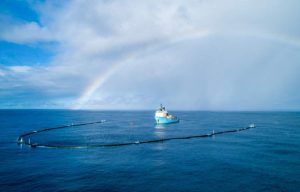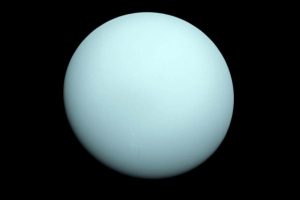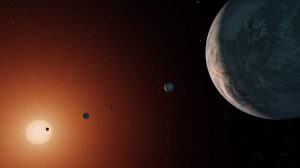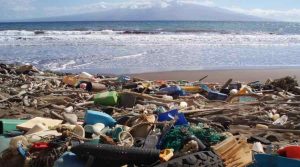Plastic trash in the oceans harms oxygen-producing bacteria
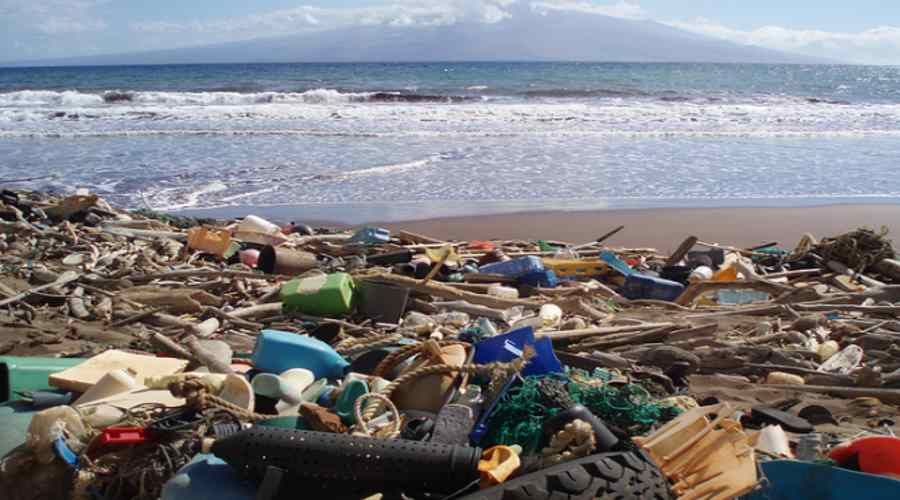
Plastic trash in the oceans harms oxygen-producing bacteria
Ten percent of the oxygen we breathe comes from one type of bacteria – Prochlorococcus – that inhabits the seas and oceans. Laboratory studies have shown that plastics, which are present in increasing amounts in the oceans, impair the growth of these bacteria and their ability to photosynthesize.
Pollution of morz and the oceanoin plastics is an extremely serious problem. It affects not only sea creatures, but the entire global ecosystem. Plastic present in the oceans has a significant impact on the development ofoj cyanobacterial species Prochlorococcus, the most abundant organismow photosynthesizing on Earth producing about 10 percent of the. Oxygen, whichorym we breathe.
As Australian and Danish scientists have shown, plastics in the oceans can release roSome chemical compounds thatore strongly disrupt the development ofoj cyanobacteria and their ability to photosynthesize. The findings were published in „Communications Biology”.
– We have discovered that chemicals emitted from plastics interfere with theoficient growth, photosynthesis and oxygen production in cyanobacteria Prochlorococcus, the most abundant photosynthesizing bacteria in the oceans – said study leader Dr. Sasha Tetu of Macquarie University in Sydney. – We now need to investigate whether plastic pollution has the same effect on these microorganisms in the oceans, she added.
It is estimated that plastic trash causes more than 13 billion in litter annuallyow USD economic losses in marine ecosystems and are now widely recognized as a serious threat to the marine environment. The current rate of increase in global plastic production, poor management of plastic waste and slow environmental degradation means that further increases in ocean pollution levelsoin plastics seems to be inevitable.
The dangers of plastic trash in the water roof chemicals have not received as much attention, such as the problems associated with marine creatures ingesting wasteoin plastics. Most non-biodegradable polymersow is considered stable and biologically inert. However, during product manufacturingoin plastics are added ro¿ne chemical compounds to improve the quality, hardness or elasticity of the productoin and on the ogow are not chemically bound to a polymer.
Sunlight, in particularoliveness ultraviolet radiation, as well as salt water, causes plastic in the oceans to break down and degrade. Plastic products are being converted into smaller and smaller fragments and, over time, release harmful chemicals. These substances include catalyst residues, solvents, plasticizers, dyes, flame retardants, UV stabilizers or antioxidants. Many of these additivesow have been detected in marine waters around the world.
Although the processes involved in getting rotion ofow chemicals from plastic trash into the marine environment are currently poorly understood, this recent research has shown that someore additives from poly(vinyl chloride) (PVC) are released after more than a year in the water.
– This pollution can penetrate the marine environment, but unlike the dangers of plastics, in ktore entangled by animals or ingested by them, leached from plasticow chemical compounds receive little attention – admitted Dr. Lisa Moore, coopublication router.
In the first study of its kind, scientists looked at the effects of these chemicals on the smallest organisms present in the oceans – photosynthesizing marine bacteria – Prochlorococcus. These microbes absorb carbon dioxide and release oxygen.
These cyanobacteria are fundamental to the health of the oceanow, but not only the oceanow. – These small microorganisms are crucial to the marine food chain, contribute to the carbon cycle and are thought to account for 10 percent of the world’s total oxygen production – explained Moore. – So one in ten breaths is made possible by these tiny bacteria, but almost nothing is known about how they respond to human contaminants, she added.
Two strains Prochlorococcus, found on rot depths in the ocean, exposed in the lab to chemicalsow leached from twooch ordinary productow of plastics – plastic adsoshopping bags made of high-density polyethylene and PVC mats.
The researchers found that exposure to these chemicals impairs the growth and function of these microorganismsow. The amount of oxygen produced has been disturbed. There has been a roalso to alter the expression of a large number of their genesow.
– Our data show that plastic pollution can have widespread effects on the ecosystem beyond the known effects on macroorganismsoin, such as seabirds and ¿olwie. If we really want to understand the full impact of plastic pollution in the marine environment and find ways to mitigate it, we need to consider its effects on key groups of microbesow, including photosynthesizing microbes – emphasized Tetu.
